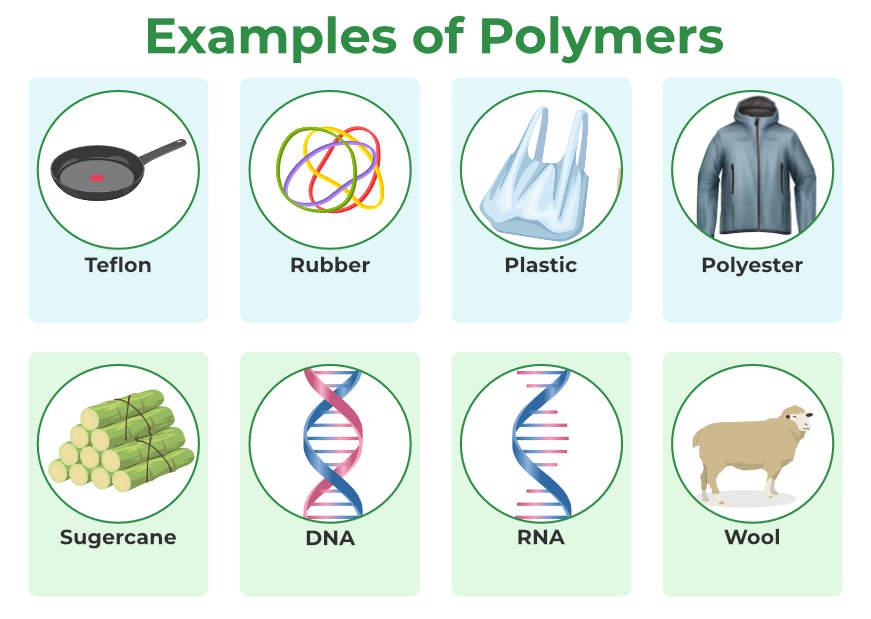Custom-made Polymers: Customized Solutions for One-of-a-kind Applications
Custom-made Polymers: Customized Solutions for One-of-a-kind Applications
Blog Article
Exploring the Varied Applications and Benefits of Polymers in Different Industries
Polymers, with their varied range of residential properties and performances, have become indispensable in numerous markets, each gaining special benefits from their application. From boosting security and performance in the auto market to revolutionizing clinical devices in the medical care market, polymers play a critical duty.
Automotive Market Applications
Polymers play an essential role in improving the efficiency and toughness of different parts within the vehicle sector. These flexible products are extensively made use of in the manufacturing of different components, ranging from interior parts to under-the-hood applications. One famous use of polymers in the vehicle industry is in the manufacturing of lightweight elements. By changing typical metal components with polymer-based alternatives, cars can achieve enhanced fuel effectiveness without endangering on strength or security.

Medical Care Sector Benefits
In various health care applications, the advantages of making use of polymers are extensively identified for their varied series of beneficial homes. Polymers play a crucial function in the health care market because of their convenience, biocompatibility, and cost-effectiveness. One of the primary benefits of polymers in medical care is their capacity to be customized to certain demands, such as adaptability, longevity, and biodegradability, making them ideal for a large range of clinical applications.
Polymer-based materials are extensively used in clinical devices, such as catheters, implants, prosthetics, and medicine distribution systems, due to their biocompatibility and capacity to resemble natural tissues. These products can minimize the danger of allergies or rejections, enhancing individual safety and security and outcomes. Additionally, polymers are light-weight, making them appropriate for wearable clinical tools and ensuring individual convenience.
Additionally, polymers enable the advancement of ingenious therapy approaches, such as hydrogels for tissue engineering and nanocomposites for targeted medication delivery. Their simplicity of handling and sterilization makes them necessary for maintaining high requirements of health in healthcare setups. Generally, the diverse advantages of polymers contribute dramatically to developments in clinical modern technology and patient treatment.
Environmental Advantages of Polymers

Additionally, polymers can add to power financial savings as a result of their lightweight nature. In industries such as transport, light-weight polymer materials can aid reduce fuel usage and greenhouse gas exhausts. In addition, polymers can enable the development of energy-efficient items such as insulation products that boost power preservation in structures.
In addition, polymers play an essential role in decreasing water contamination. For instance, the usage of polymer-based filtration systems can effectively remove toxins and impurities from wastewater, guarding water sources and ecological communities. Generally, the environmental benefits of polymers make them beneficial properties in promoting sustainability and environment-friendly methods across numerous markets.
Polymers in Electronics and Modern Technology
Thinking about the enhancing demand for cutting-edge and sustainable solutions in modern-day markets, the assimilation of sophisticated polymer technologies in the world of electronics and innovation has emerged as a pivotal approach for driving effectiveness and performance. Polymers have actually revolutionized the electronic devices industry by making it possible for the production of lighter, more versatile, and durable digital devices. From smart devices to medical tools, polymers play an important duty in improving item style and performance.
One substantial advantage of polymers visit this web-site in electronic devices is their insulating properties, which assist protect delicate digital components from environmental aspects and electrical interference. In addition, polymers are vital in the growth of flexible screens, wearable modern technology, and printed electronics, using endless possibilities for producing clever and interconnected devices.
Additionally, making use of polymers in digital packaging has caused innovations in miniaturization and thermal management, enhancing the total efficiency and next page reliability of electronic systems. As technology remains to progress, the convenience and adaptability of polymers will unquestionably drive additionally innovation in the electronics industry, shaping the future of innovation.
Function of Polymers in Building and Facilities
The assimilation of innovative polymer products in building and construction and framework tasks has actually revolutionized the way structures are designed and built in modern times. Polymers offer numerous advantages in the building industry due to their versatility, sturdiness, and cost-effectiveness. One essential role of polymers in construction is their use in finishes and sealers, offering security against ecological variables such as wetness, UV radiation, and rust. Additionally, polymers are utilized in the production of light-weight and high-strength composite materials, enhancing the structural integrity of structures while lowering general weight.
In addition, polymers play a critical function in lasting building practices by making it possible for the development of energy-efficient frameworks. Insulating products made from polymers help manage indoor temperatures, minimizing the need for home heating and cooling down systems and eventually decreasing energy intake. Furthermore, using polymer-based composites in facilities projects such as bridges and roads boosts their longevity and minimizes maintenance costs. On the whole, the incorporation of polymers in building and framework displays their significant effect on modern-day Related Site engineering methods.
Conclusion
In final thought, polymers play an essential role in various sectors such as auto, health care, environmental, electronics, and construction. From boosting fuel efficiency in vehicles to boosting medical devices, polymers supply many advantages.
Report this page